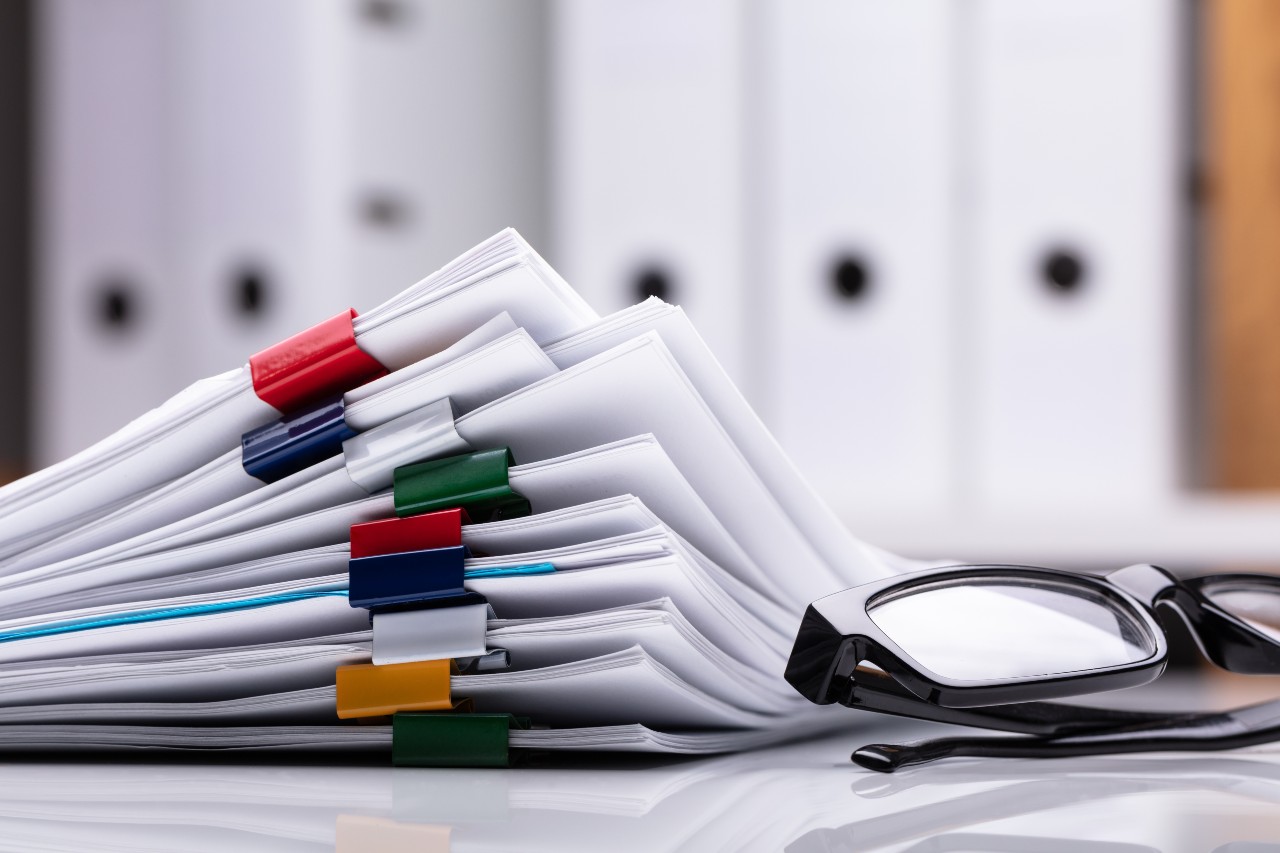At some point after becoming independent, we all start to realize that life comes with a lot of paperwork. If we work, we file tax returns. If we save, we get bank statements. If we own anything of value, we get insurance policies. Once you begin to buy property or invest, the volume of paper may make you may start to wonder how there are any trees left at all.
Luckily, most of these forms, invoices, and pages of boilerplate can be tossed at some point – the trick is knowing when you can safely say goodbye.
Tax Documents
If you file tax returns, you will want to keep copies of your Federal and state returns for at least three years (although some states, like California, require more), as well as any supporting documentation that proves income, deductions, and credits.
If you think you forgot to report income, and it is more than 25% of your gross income, keep six years of returns.
If you claim a loss for worthless securities or bad debt deduction, keep seven years of returns.
If you made taxable gifts or received an inheritance, keep all forms along with supporting documentation in your permanent records.
Healthcare Documents
If you have a Health Savings Account keep all medical receipts from the date the account was opened (this allows tax-free withdrawals years later).
Did you write of medical expenses on your tax return? If so, keep records for as long as you keep the applicable tax return.
If you are on Medicare, keep your Summary notices for at least a year, or until your bill is paid in full.
If you think you may apply for Medicaid (perhaps due to long-term care expenses), keep all financial statements and records of transactions for the previous five years to support your application, as there is generally a five-year look-back provision.
Legal Documents
If you are a U.S. citizen, keep copies of your Social Security card, birth certificate, and passport.
If you are a foreign national, keep all documents related to your entrance into the U.S., such as a passport, Green Card, and I-94.
Are you married? If so, keep your marriage certificate on file, which may be needed in case of a name change, insurance benefits, and a joint mortgage. If you have a pre-nuptial agreement, store the original in a safe place.
Keep any divorce papers in your permanent records.
If you served in the military, keep your discharge papers in your permanent files.
Do you have estate-planning documents such as a will, trust, or Powers of Attorney? The originals should be kept in a safe place, with copies given to people who will act for you such as your agents, Executor, and Successor Trustee. You should also keep a record of your Advance Directive and latest beneficiary information (for retirement accounts and life insurance policies).
If you have a safe deposit box, you should have someone you trust also be a signer on the box and have a key, as banks will not allow anyone not on the account to access the box, even in the event of your death.
Asset & Debt Related Documents
If you have investment accounts, keep your most current statement on file. The previous year’s End of Year statement should be kept until your tax return is completed. If you own investments purchased before 2012, keep records of what you paid in the event that you sell them, as those were not tracked.
If you have retirement accounts, keep a record of any contributions or withdrawals. If you made a Roth conversion, keep those records permanently. If you made non-deductible contributions to an IRA, keep Form 8606 until the account is fully withdrawn.
If you own a business, keep the Federal EIN, business formation documents, ownership agreements, and any business licenses. Also keep payroll records, tax records, receipts for expenses, invoices, deeds, titles, and records of employee benefits such as retirement plans.
If you have any debts such as student loans or mortgages, keep the loan documents until the loan is paid off, and then permanently keep a record of paying in full.
All deeds, titles, settlement statements, or bills of sale on property should be kept until you sell the property. Also keep a record of any fees or expenses that should be added to the basis of the property (remodeling expenses, improvements, etc.).
If you own property in multiple states, keep detailed records proving which state you lived in for the majority of the year (receipts or travel itineraries). This can be critical in establishing residency or for state tax liability.
Other Documents
Keep diplomas or certifications proving that you completed higher education coursework.
Keep insurance policies (homeowners, disability, auto, life insurance) that are current and in force.
If you have any employment contracts or non-compete agreements that are current, keep those as long as the term lasts.
Finally
Keeping these guidelines in mind won’t eliminate the need for files, but it can at least help reduce the clutter, whether paper or digital.


